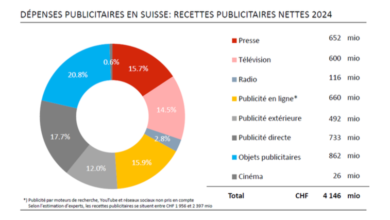Desperate Spies
 When in the midst of a sweltering Moscow summer Prime Minister Putin sat down with the newly repatriated Russian spy ring at an “undisclosed location” (probably somebody’s dacha), they spoke of life, promised to seek out the enemies who betrayed them, and sang a song “Where does our Homeland begin”. Any Russian born in the 20th century knows this song by heart, as it is as much a part of the folklore as Anna Karenina or Stolichnaya. Before the days of 24 and Mad Men, it crowned the soundtrack of the first Soviet spy TV series “Shield and Sword”. The telefilm portrayed a glamorous Russian spy with a heart of gold and nerves of steel, as he successfully convinced Nazi Germans for a whole of 4 episodes that he was one of them.
When in the midst of a sweltering Moscow summer Prime Minister Putin sat down with the newly repatriated Russian spy ring at an “undisclosed location” (probably somebody’s dacha), they spoke of life, promised to seek out the enemies who betrayed them, and sang a song “Where does our Homeland begin”. Any Russian born in the 20th century knows this song by heart, as it is as much a part of the folklore as Anna Karenina or Stolichnaya. Before the days of 24 and Mad Men, it crowned the soundtrack of the first Soviet spy TV series “Shield and Sword”. The telefilm portrayed a glamorous Russian spy with a heart of gold and nerves of steel, as he successfully convinced Nazi Germans for a whole of 4 episodes that he was one of them.
What a Russian image it is: a bunch of nostalgic spies singing a song together. It implies empty vodka bottles on a table strewn with melting zakuski, a strong bearded man propping his head on an elbow, as he starts signing in a sad baritone, the full-cheeked beauty next to him tuning in, the rest of the guests turning glossy-eyed as they pick up the old song from the days when one had something to spy for. Most Russians won’t take this at face value, but it will warm their hearts. What would seem to a naked Western eye as pure “ham” is, in fact, a brilliant piece of propaganda – a touch of a second degree irony that will make the moment memorable, allowing the now cosmopolitan country to forget what fools they’ve made of themselves to the rest of the world. No wonder Comrade Putin has “reluctantly” mentioned the song at the first media junket, while promising his compatriots that the heroes will get honorable employment in the newly found homeland.
One always needed heroes in Russia, loveable heroes at that. But unlike the “Shield and Sword” hero, who could outdrink James Bond on the rarest of Scotch and make him lose his Saville Row trousers at poker, our suburbia infiltrators were clearly a hapless bunch, so useless that one wonders if the Coen brothers are already working on a screenplay.
Their objective was to enter policy making circles – a goal that by virtue of their insignificant identities they could not possibly accomplish. Another brilliant plan was to collect insider information, use steganography encryption to place it inside innocuous images and then post the pictures to designated web sites (I do hope Facebook was one of them).
It seems however, that the information supplied by our undercover agents could have been easily Googled from Moscow by a 10-year old. To make it sound more important they would actually fake the names of their sources. Beyond believable, the password needed to decrypt the coded images was so long they kept writing it down on a piece of paper — kind of like the pass to your home Wi-Fi. One of the spies carelessly left this piece of paper out, which led to the unraveling of the whole group.
Still the image that haunts me most is that of a forgotten operative living out an unremarkable identity in some god-forgotten sleeper town, waiting for something important to happen, while his fake suburban life rolls by. It is a making of a Russian classic – something Chekhov would have turned into a heart-breaking play, Dostoyevsky into a gripping thriller and Tolstoy into a life-defining novel.
But would they pay Anna Chapman $250000 she is asking for her story? Hollywood might, but I suggest they try Googling first.





